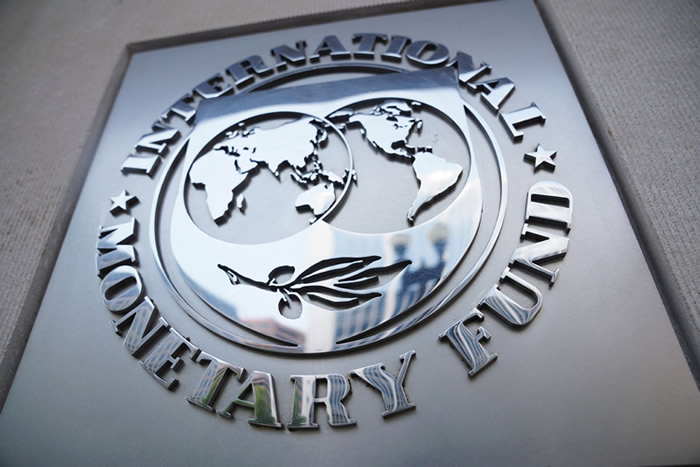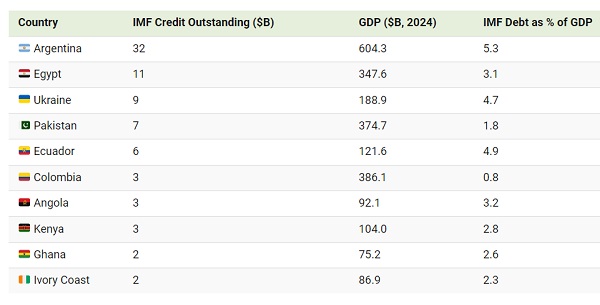
The International Monetary Fund (IMF), established in 1944, acts as a financial lifeline for countries facing economic turmoil.
While nearly 100 nations owe the IMF a combined US$111 billion, the International Monetary Fund’s data on Total IMF Credit Outstanding reveals the top 10 most indebted countries.
A continent in need: Africa takes half the top spots
The ranking, compiled using the IMF’s latest debt data, shows a surprising trend. Five of the top 10 debtors hail from Africa – Egypt – $10,854,130,844, Angola – $3,079,316,668, Kenya – $2,566,263,300, Ghana – $2,042,641,000 and Cote d’Ivoire – $1,940,385,704), highlighting the economic challenges faced by the continent. Two West African neighbours, Ghana and Cote d’Ivoire are currently undergoing IMF-backed extended credit facility programmes to address their challenges.
Topping the list is Argentina, a major grain exporter and G20 member. The South American nation owes a staggering $32 billion, equivalent to a hefty 5.3% of its GDP. This isn’t Argentina’s first time with the IMF – their history of debt troubles stretches back to the late 1890s, when a default followed loans taken to modernize their capital city. The IMF has bailed out Argentina over 20 times in the past 60 years, highlighting the cyclical nature of their economic struggles.
South America feels the squeeze
Argentina isn’t alone in its struggles. Two other South American nations (Colombia and Ecuador) make the top 10, showcasing the economic vulnerability of the region. This trend underscores the need for robust economic policies and diversification to prevent overreliance on external support.
The European exception: Ukraine
The only European country on the list is Ukraine, unsurprisingly grappling with a massive $9 billion debt. The ongoing conflict with Russia has devastated their economy, causing an estimated loss of a third of its output. The IMF serves as a crucial source of support for the war-torn nation.
The Road to recovery: Overcoming debt burdens
The ranking serves as a stark reminder of the global economic challenges faced by many nations. While the IMF provides vital support, the ultimate goal for these countries is to implement sustainable economic reforms and reduce their reliance on external debt.

Source: graphic.com.gh







